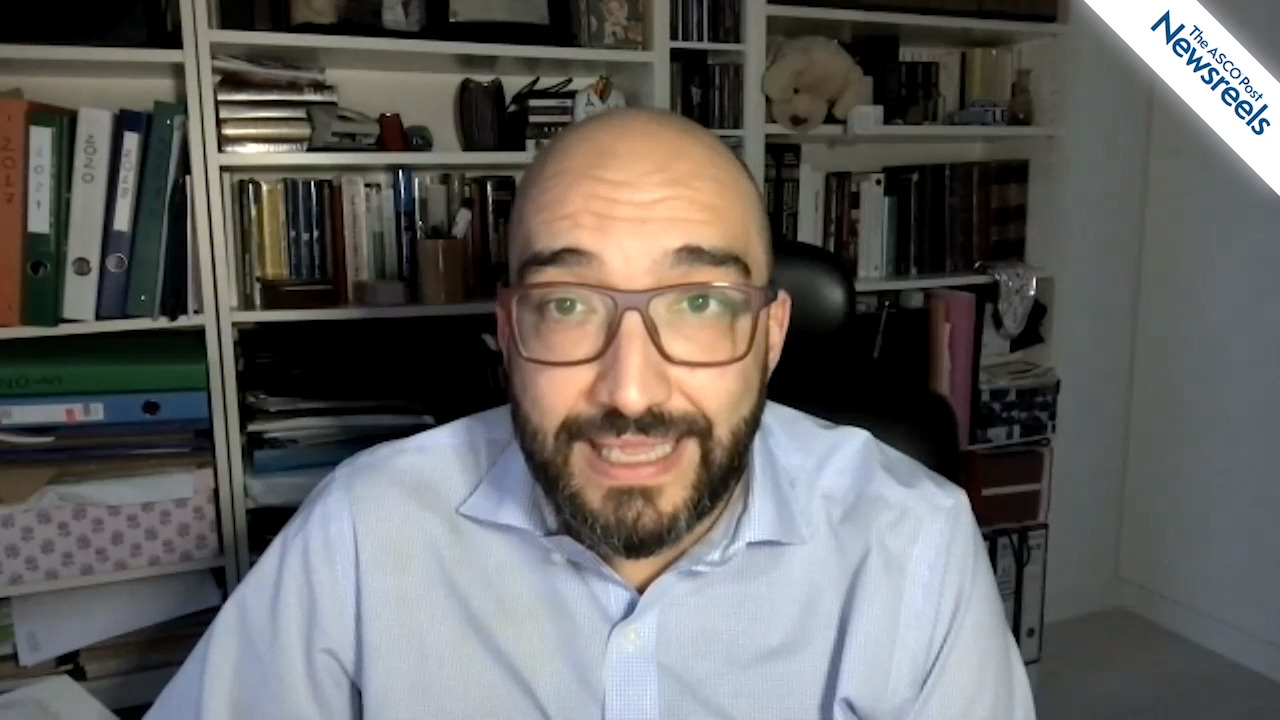Jeanne Tie, MD, MBChB, on Circulating Tumor DNA, Minimal Residual Disease, and Adjuvant Treatment
AACR Annual Meeting 2021
Jeanne Tie, MD, MBChB, of the Peter MacCallum Cancer Centre, discusses how to improve the current, somewhat imprecise, approach based on pathologic staging alone, used to select patients for adjuvant treatment. Circulating tumor DNA analysis after curative-intent treatment may detect minimal residual disease and might be used to predict recurrence and adjuvant treatment efficacy across multiple tumor types.
The ASCO Post Staff
Joann G. Elmore, MD, MPH, of the UCLA Fielding School of Public Health, discusses previous studies that show wide variability in cancer diagnoses, the uncertainties introduced by computer-aided detection tools, and new research on artificial intelligence and machine learning that may lead to more consistent and accurate diagnoses and prognoses, potentially improving treatment (Abstract SY01-03).
The ASCO Post Staff
Georgina V. Long, MD, PhD, of the Melanoma Institute Australia, University of Sydney, discusses results of the CheckMate 915 trial, which may reinforce nivolumab as an adjuvant standard of care in patients with stage IIIB–D/IV melanoma, with or without complete lymphadenectomy (Abstract CT004).
The ASCO Post Staff
Enrique Grande, MD, PhD, of The University of Texas MD Anderson Cancer Center, Madrid, discusses phase III overall survival results from the IMvigor130 study of atezolizumab plus platinum and gemcitabine vs placebo plus platinum and gemcitabine in patients with previously untreated metastatic urothelial carcinoma (Abstract CT187).
The ASCO Post Staff
Carey K. Anders, MD, of the Duke Cancer Center, discusses the ways in which treatment of brain metastases arising from solid tumors has moved into a new era of patient care and how the field may advance.
The ASCO Post Staff
Brian I. Rini, MD, of Vanderbilt University, discusses the IMmotion151 trial results on overall survival and the association of gene expression and clinical outcomes with atezolizumab plus bevacizumab vs sunitinib in patients with locally advanced or metastatic renal cell carcinoma (Abstract CT188).





